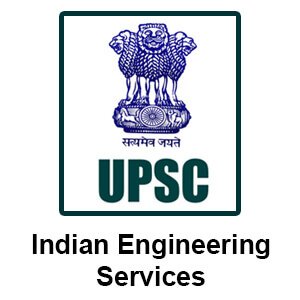
Union Public Secondary Commission Indian Engineering Service (UPSC IES) Exam Pattern
Union Public Service Commission (UPSC) conducts Engineering Service Examination (ESE) (also known as Indian Engineering Services (IES) examination) for recruitment of candidates to various posts in Indian Engineering Services. The examination is conducted in the following stages:
Stage I: Engineering Services (Preliminary) Examination (Objective Type Papers)
Stage II: Engineering Services (Main) Examination (Conventional Type Papers)
Stage III: Personality Test
Only those candidates who qualify the preliminary stage are eligible to appear in the Main examination provided they fulfil the other eligibility requirements.
The UPSC IES Exam Schedule for 2018 is:
|
Exam Events |
Important Dates |
|
Engineering Services Examination (Preliminary) |
07 January 2018 (Sunday) |
|
Engineering Services Examination (Main) |
O1 July 2018 (Sunday) |
Scroll left or right to view full table
Let’s have a detailed look at the UPSC IES Exam pattern:
Stage I: Engineering Services Examination (Preliminary)
This stage includes two papers for every stream. Candidates choose different stream according to their subject of engineering.
Civil Engineering
|
Papers |
Maximum Marks |
Time Duration |
|
General Studies and Engineering Aptitude (Paper I) |
200 |
2 hours |
|
Civil Engineering (Paper II) |
300 |
3 hours |
|
TOTAL |
500 |
5 hours |
Scroll left or right to view full table
Mechanical Engineering
|
Papers |
Maximum Marks |
Time Duration |
|
General Studies and Engineering Aptitude (Paper I) |
200 |
2 hours |
|
Mechanical Engineering (Paper II) |
300 |
3 hours |
|
TOTAL |
500 |
5 hours |
Scroll left or right to view full table
Electrical Engineering
|
Papers |
Maximum Marks |
Time Duration |
|
General Studies and Engineering Aptitude (Paper I) |
200 |
2 hours |
|
Electrical Engineering (Paper II) |
300 |
3 hours |
|
TOTAL |
500 |
5 hours |
Scroll left or right to view full table
Electronics and Telecommunication Engineering
|
Papers |
Maximum Marks |
Time Duration |
|
General Studies and Engineering Aptitude (Paper I) |
200 |
2 hours |
|
Electronics and Telecommunication Engineering (Paper II) |
300 |
3 hours |
|
TOTAL |
500 |
5 hours |
Scroll left or right to view full table
Stage II: Engineering Services Examination (Main)
The second stage also includes two papers; both of them are subject-related.
Civil Engineering
|
Papers |
Maximum Marks |
Time Duration |
|
Civil Engineering (Paper I) |
300 |
3 hours |
|
Civil Engineering (Paper II) |
300 |
3 hours |
|
TOTAL |
600 |
6 hours |
Scroll left or right to view full table
Mechanical Engineering
|
Papers |
Maximum Marks |
Time Duration |
|
Mechanical Engineering (Paper I) |
300 |
3 hours |
|
Mechanical Engineering (Paper II) |
300 |
3 hours |
|
TOTAL |
600 |
6 hours |
Scroll left or right to view full table
Electrical Engineering
|
Papers |
Maximum Marks |
Time Duration |
|
Electrical Engineering (Paper I) |
300 |
3 hours |
|
Electrical Engineering (Paper II) |
300 |
3 hours |
|
TOTAL |
600 |
6 hours |
Scroll left or right to view full table
Electronics and Telecommunication Engineering
|
Papers |
Maximum Marks |
Time Duration |
|
Electronics and Telecommunication Engineering (Paper I) |
300 |
3 hours |
|
Electronics and Telecommunication Engineering (Paper II) |
300 |
3 hours |
|
TOTAL |
600 |
6 hours |
Scroll left or right to view full table
Negative Marking: There is a penalty of one-third marks in the objective type questions. For every wrong answer, 0.33 of the marks assigned to the question will be deducted. No marks will be deducted for the questions not answered. If the candidate marks more than one answer for any question, it will be considered as wrong (even if one of the marked answers is correct.)
Stage II: Engineering Services Examination (Personality Test)
In the third stage of ESE/IES exam, candidates are accessed on the parameters of leadership, intellectual curiosity, initiative, social qualities, practical application skills and integrity. The paper is of 200 marks. Candidates are required to consider the following points for stage III examination:
- Candidates should write the paper in their own handwriting; help of a scribe will not be allowed under any circumstances. However, blind candidates and candidates with Cerebral Palsy and Locomotor Disability where writing is affected (minimum 40% impairment) will be allowed the help of a scribe.
- Blind candidates and candidates with Cerebral Palsy and Locomotor Disability (minimum 40% impairment) will be provided a compensatory time of 20 minutes per hour.
- In the question papers, SI units will be used (wherever required.) Standard chart/tables in SI units will be provided if necessary.
- Candidates are allowed to carry battery-operated calculators only for conventional type papers. Sharing of calculators will not be allowed in the examination hall.
- Answers written in an effective and orderly manner with exact expression will be given credit.
- Upto 5% of the maximum marks for the written papers will be deducted for illegible handwriting.
Conventional question papers at all stages will be set only in English language and should be answered in English only.

0 Comments